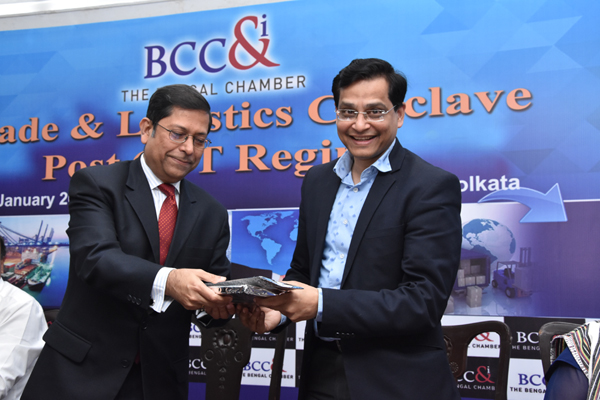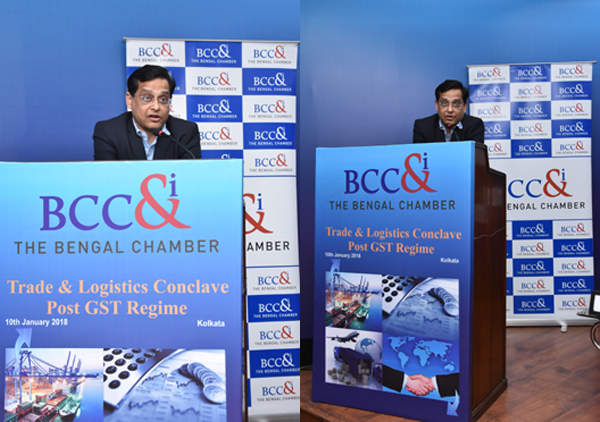
The Bengal Chamber organises 'Trade & Logistics Conclave post GST regime'
Kolkata, Jan 11 (IBNS): To establish a thread between Logistics, International Trade and Metals via GST, Kolkata-based Bengal Chamber organised a 'Trade & Logistics Conclave Post GST Regime' recently at the Chamber premises.
Like all other industries in India, GST's impact on logistics and supply chain is bringing some major changes in the way these domains operate, as also their bookkeeping activities.
The logistics sector is seen as a major gainer of the GST regime. Logistics is a small but major part of supply chain management that concerns the administration of goods distribution in an efficient manner.
According to the participants, while costs might rise owing to compliance and adjustment issues with increasing frequency of filing returns, the operational efficiency in long run is expected to improve. The impact and overall cost benefits of GST will additionally vary widely across industries, the speaker said.
“The implementation of the goods and services tax, with effect from July 1, has immensely benefited the domestic steel industry as it has improved the sector’s competitiveness and reduced the transportation time by up to 45%. Under the new tax regime, the cost of raw material is set to come down as the GST rate for iron ore, a key steel-making raw material, and other inputs have been kept at 5% from around 11-12% now. This will further add to the competitiveness of the Indian steel sector. Previously, whenever a steel product had to cross a state border, there were number of check posts which resulted into delay of supply of goods to the customer. Under GST, a unified standard rate of tax has reduced cost and delay," said Deb A Mukherjee, Vice President, the Bengal Chamber and Managing Director, Cenergist Energy Private Limited.
According to T.B. Chatterjee, Chairperson, Indirect Tax Committee, BCC&I and Chief Corporate Officer, Legal and Corporate Affairs, DTC India Ltd, “After implementation of GST, there is considerable time saving in logistics as there is no longer check posts checking for truck movements. At the same time, export will suffer due to poor implementation in International Trade.”
Sunita Sindwani, Chief General Manager, Exim Bank spoke about Exim Bank playing a big role in catalyzing financing and supporting all stages of export process and also providing advisory services that supported India’s two way trade.
 Shivaji Narvekar, General Manager-National Marketing Division , ECGC, spoke about ECGC supporting development of India’s exports and encouraging India in seeking all global markets.
Shivaji Narvekar, General Manager-National Marketing Division , ECGC, spoke about ECGC supporting development of India’s exports and encouraging India in seeking all global markets.
Keynote speaker Anant Swarup, Joint Secretary(Logistics), Department of Commerce, Union Ministry of Commerce and Industry, said, “Trade and Logistics are very closely linked. That’s why Government of India amended the integrated Logistics rule. Trade is a huge challenge in India. Good logistics would make our exports competitive. The Government of India had a meeting of all states on 8th January about export potential of each state and has taken out a booklet for the same. The Government is also working on a National Integrated Logistics Plan for the country to find out logistical requirement till 2035. Its aim is to assess the most efficient mode of transport. Logistics is now given Infrastructure status.The ultimate focus remains to bring down logistic costs.”
Support Our Journalism
We cannot do without you.. your contribution supports unbiased journalism
IBNS is not driven by any ism- not wokeism, not racism, not skewed secularism, not hyper right-wing or left liberal ideals, nor by any hardline religious beliefs or hyper nationalism. We want to serve you good old objective news, as they are. We do not judge or preach. We let people decide for themselves. We only try to present factual and well-sourced news.







